Enterprise resource planning (ERP) software is used by businesses of all kinds to collect, organize, track, manage, and understand data across departments. Companies across all industry sectors gain advantages and benefits from ERP software, which enables them to track and manage resources as well as unify and consolidate data. Panr.info will provide you some of Best Cloud ERP Project Management Tools For 2023 in this post.
Table of Contents
WHAT IS ERP?
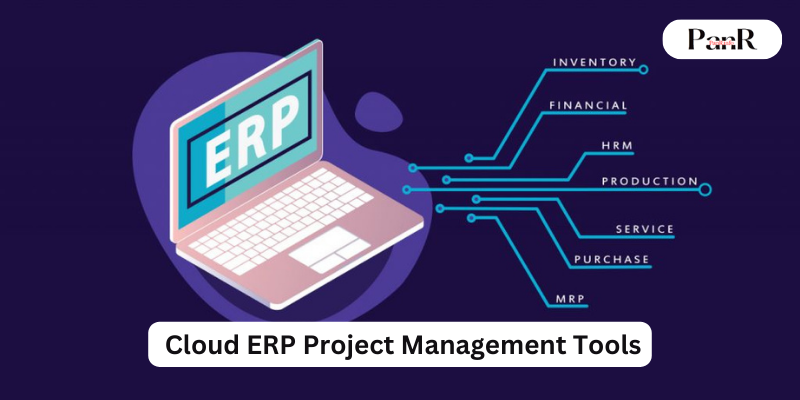
ERP (Enterprise Resource Planning) is a software solution that organizations use to manage daily business activities such as accounting, project management, risk management, etc., as well as supply chain operations. A complete ERP system also includes project planning of costs, products, production, etc., forecasting, and reporting the financial results of the organization.
ERP systems link business processes together and allow data to flow between departments. By collecting shared data from multiple departments, ERP systems eliminate duplication and provide accurate information on a single platform.
Today, the ERP system acts as a “lighting source” to help businesses break down barriers to successful digital transformation. Currently, there are three different types of ERP:
- Foreign ERP solutions
- Domestic ERP solutions.
- Custom-designed ERP system.
WHAT IS CLOUD ERP?
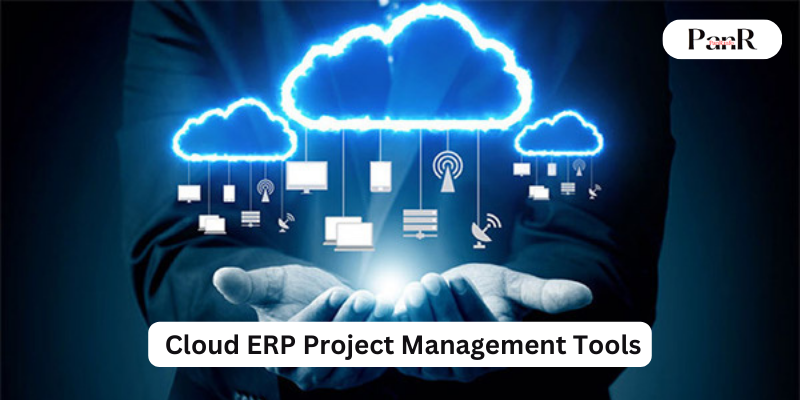
Cloud ERP is a type of enterprise resource planning software that is hosted in the cloud instead of at the enterprise’s own databases. Software that integrates some or all of the functions needed for a business to function, for example: accounting, inventory and order management, human resources, customer relationship management (CRM) …into a complete system.
Great Benefits From Cloud ERP Solution
- Optimizing processes
Cloud ERP solutions integrate multiple applications, tightly linking all processes together on a single platform. Therefore, managers of businesses always update all information, such as sales, profits, etc., on request whenever they need it. Intuitive financial reporting and analysis reduce the need to create Excel reports. This allows for more streamlined operations with online access and a professional approach to work. - Reduce expenses.
According to research conducted by consulting firm Panorama, 95% of businesses have improved their businesses thanks to cloud ERP. According to the report, a significant number of companies have saved costs by using cloud solutions to manage and optimize enterprise resources. As a result, businesses increase revenue and focus their budgets on developing long-term goals for the future. - Real-time continuous updates
Unlike traditional ERP solutions that often require manual upgrades, cloud-based ERPs can update systems instantly every time a vendor develops or improves the software. Automatic updates help save costs and avoid disrupting business hours. - Provides better security.
Cloud providers often provide security systems according to international standards, so all important data and information about the business is absolutely protected. Seamless integration between enterprise applications, databases, processes, and user interfaces also takes security to the next level. - Easy to expand
Cloud ERP easily scales as the business grows. Because it supports the pay-per-user module and smoothly responds to the dynamically changing business needs of the enterprise. -
Provides flexibility and agility
Business owners and stakeholders can immediately respond to client requests thanks to cloud-based ERP solutions. It lowers barriers to innovation, enabling the development of new applications and services. -
Helping managers make better decisions
With Cloud ERP solution, all information is updated quickly in real time. The flow of information between departments is also smooth. Data accessible from any smart device with an internet connection helps managers make better decisions. - Improve connections with customers.
Businesses are able to provide excellent customer service because to cloud ERP. Customers’ faith in the firm will increase if their needs are met and deliveries are made quickly. - Improve the productivity of business.
In situations when staff must enter a lot of data, automation lowers the chance of errors. While the solution handles regular chores, workers can concentrate on producing results. By reducing operating expenses and boosting productivity, cloud ERP boosts business productivity.
Best Cloud ERP Project Management Tools For 2023
1.Microsoft Dynamics 365 -Best Cloud ERP Project Management Tools For 2023
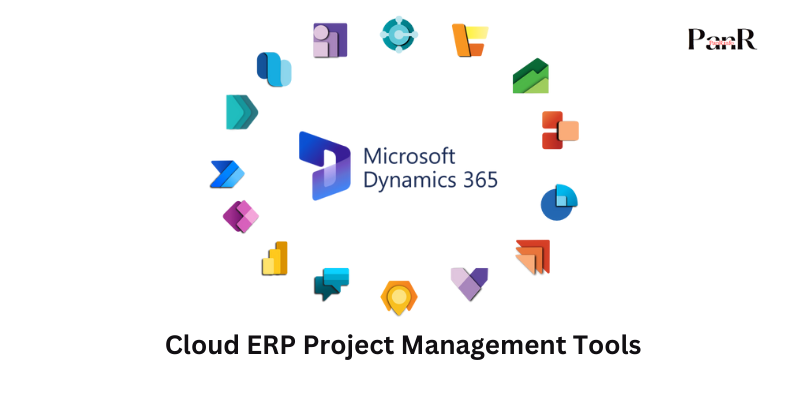
A collection of professional business solutions called Microsoft Dynamics 365 assists enterprises in providing excellent operational performance and interesting client experiences. Modular and pre-built apps for sales, marketing, customer support, field service, finance, supply chain management, project operations, commerce, and human resources function natively in the Microsoft cloud and effortlessly integrate with other systems and procedures.
Users of the corporate resource planning software Microsoft Dynamics 365 have a single picture of their clients and may monitor market trends, cut costs, and automate procedures.
- Advantages
Applications with connections
With the aid of MS partners, quick deployment and onboarding are possible.
Integrated security measures
- Disadvantages
High learning curve
Users request better automation.
2.Oracle Cloud ERP – Best Cloud ERP Project Management Tools For 2023
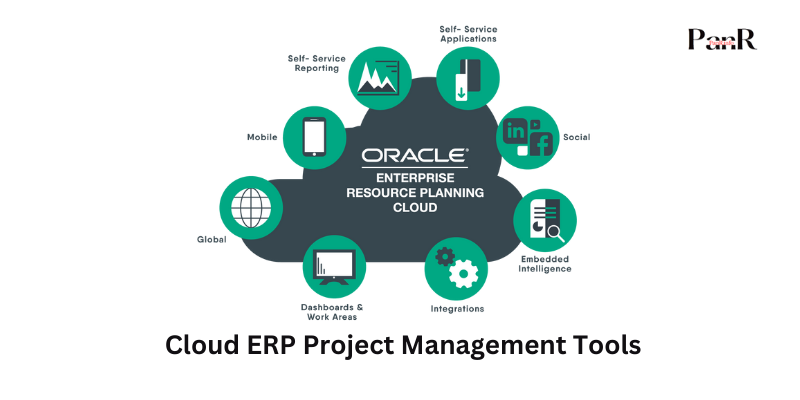
Users may get a full picture of the finances and operations of their business with Oracle Cloud ERP. The following modules are included: ERP analytics, financials, project management, procurement, risk management and compliance, EPM, supply chain and manufacturing. It is a cloud-based ERP with integrated AI to assist with situational prediction, detection, and response.
Automation is offered by Oracle Cloud ERP to do away with manual business procedures. Common chores are streamlined and expedited with an AI digital assistant. Additionally, machine learning insights enable businesses to locate and introduce new business models. Users receive a transparent financial picture to aid in decision-making. They are able to lower risk, develop a more robust organization, and connect projects with corporate goals.
- Advantages
Applying accounting policy
Tracking transactions
Automated security, compliance, and risk management
- Disadvantages
Moving can be a challenge.
Improve location-based access control.
3. IFS Cloud – Best Cloud ERP Project Management Tools For 2023
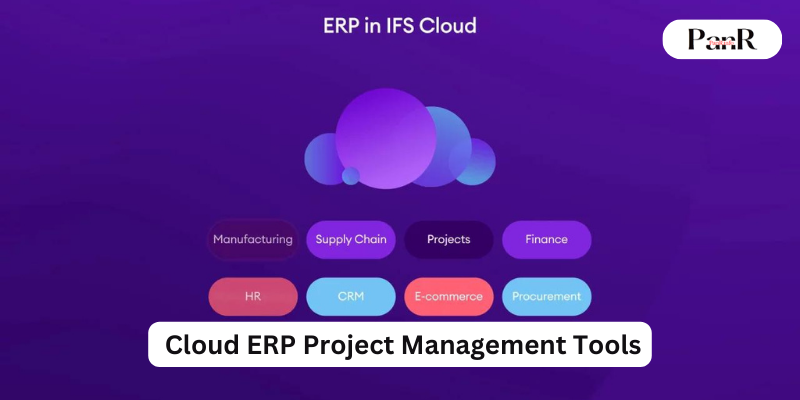
IFS Cloud is a single item that combines a number of solutions, including those for CRM, business, finance, human capital management, project management, purchasing, manufacturing, supply chain management, service management, asset management, aircraft maintenance, and sustainability. In order to maximize fix rates in the field, it features augmented reality capabilities and built-in intelligence that helps automate priorities.
IFS Cloud’s responsive design, scalable dashboards, branding, and offline capabilities in mobile apps let users work as they want to. Additionally, users have the option to install either in their own data centers or on the IFS-managed cloud. It is perfect for the service sector, manufacturing, telecommunications, utilities, building, aerospace, and defense industries.
- Advantages
At-a-glance dashboards that can be customized
Creation of documents
Highly adaptable
- Disadvantages
The customer portal might use some work.
The UI must be more understandable.
CONCLUSION
The 3 Cloud ERP Project Management Tools available now are listed in the post above. Businesses might think about selecting the best software for themselves based on the sector they are in, their size, and their capacity to cover prices.
With the help of this post, Bussiness should be able to select the best Cloud ERP Project Management Tools in 2023.





